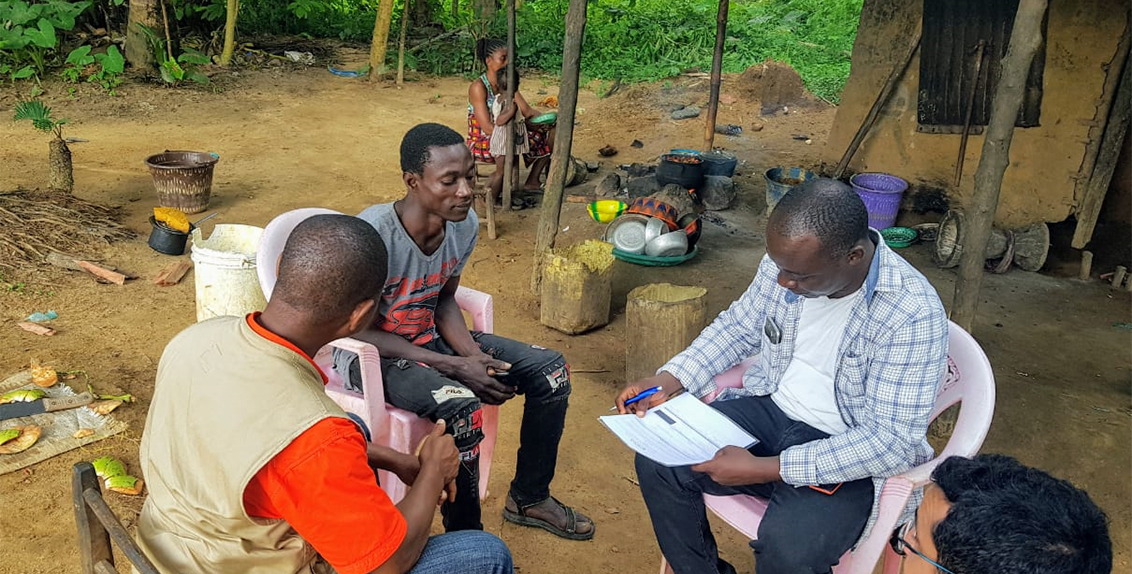Poor water management and salinity top list of farmers’ concerns in sub-Saharan Africa

Inadequate water management, salinity, lack of proper agronomic practices and crop diversity are some of the major issues affecting agriculture in Mozambique, The Gambia, Liberia, Togo, and Sierra Leone, the results of a series of fact-finding missions by scientists from the International Center for Biosaline Agriculture (ICBA) show.
The findings were reported recently following several missions and water resource management workshops by ICBA scientists in five sub- Saharan African countries, where the project entitled “Improving Agricultural Resilience to Salinity through Development and Promotion of Pro-poor Technologies” (or RESADE), is being implemented.
The main purpose of the missions was to identify water management challenges, gaps and opportunities in these countries, and more specifically identify issues related to salinity and other problems impacting on agricultural production.
Farmers in Moamba District informed the RESADE team that they wish to see their abandoned land reclaimed. The team found that a major part of land under the local irrigation scheme is abandoned due to salinity problems. The district is looking forward to the interventions from the RESADE project to find solutions to address the salinity challenges they are facing.
Farmers also highlighted that the project interventions would also help other farmers who currently do not have productive farmlands and hoped to see the project to be expanded to other affected areas in the district and the country.
During the workshop, participants identified about 70 water management strategies used in Mozambique. They also developed key objectives for better policies to bridge the gap between challenges and opportunities for water management.
The objectives include enabling sustainable management to reduce the impact of disasters, salinization, and greenhouse gases; and increase productivity to create opportunities for the private sector, women, and youth.
In The Gambia, while interacting with stakeholders during a workshop on 1-2 July 2019, which was organized in collaboration with the National Agriculture Research Institute of The Gambia, the RESADE team found that there is a lack of capacity to coordinate, collaborate on and control water resources, as well as inadequate information and funding.
During a visit to rural areas, the team met with local farmers. There is a mismatch between supply and demand, where damaging floods and intense rainfall periods during the wet season combined with water scarcity in the dry season and sometimes drought conditions often leave farmers with less access to water than they require. This mismatch also leads to less water recharge in the important groundwater aquifers that supply most of the water needs.
The team also identified some opportunities. For example, during a visit to the Kerewan area of The Gambia, it was found that the area, which is next to a river, is highly saline, but has excellent potential for the introduction of salt-tolerant grasses and Salicornia, a salt-tolerant plant used for food, forage and biofuel production.
In Togo, the team conducted another workshop on 8-9 July 2019 in collaboration with the Togolese Institute of Agricultural Research (ITRA).
While interacting with local stakeholders and farmers, the team found that there is a lack of data to understand how much water is available in the country, what the demands are, and how much water abstraction is taking place. There is also a lack of funding for water management projects, maintenance, and repairs of the existing infrastructure.
The good thing is there is a political will to act in Togo. The country has a national plan for integrated water management, which facilitates policies and programs and decentralization of management to the regional and local levels.
Capacity development for local farmers and other stakeholders in water management and the implementation of concrete initiatives are expected to improve the situation and enhance economic growth, food security and public health.
In Liberia, the RESADE team identified lack of oversight over existing policies as some of the major problems. There is also no adequate gender focus and climate-smart agriculture program to define the role of water in poverty alleviation and food security.
To overcome current challenges and tap into the existing potential in Liberia, participants of the workshop conducted by ICBA on 4-5 July 2019 in collaboration with the Liberian Central Agricultural Research Institute stressed the importance of effective water management to ensure availability, accessibility and affordability.
During a similar visit to Sierra Leone, the experts from Sierra Leone Agricultural Research Institute (SLARI) noted that soil salinity is caused by seawater intrusion and exists mainly in the northwest of Sierra Leone where rice cultivation is commonplace.
In Kambia Region of Sierra Leone, the ICBA team surveyed rice farmers to understand the problems associated with salinity. The soil in this region is reported to be affected by seawater intrusion, and the community relies on saline boreholes for domestic water use.
Moreover, it was also discovered that farmers in the region mostly practice subsistence farming as they use crops with little tolerance to salinity, which results in low productivity. Markets for agricultural products are also not developed properly.
Based on these findings, the team will establish best practice hubs in each country, where various packages including crops, soil amendments, irrigation and fertilization techniques will be implemented.
The RESADE project is funded by the International Fund for Agricultural Development (IFAD) and the Arab Bank for Economic Development in Africa (BADEA).